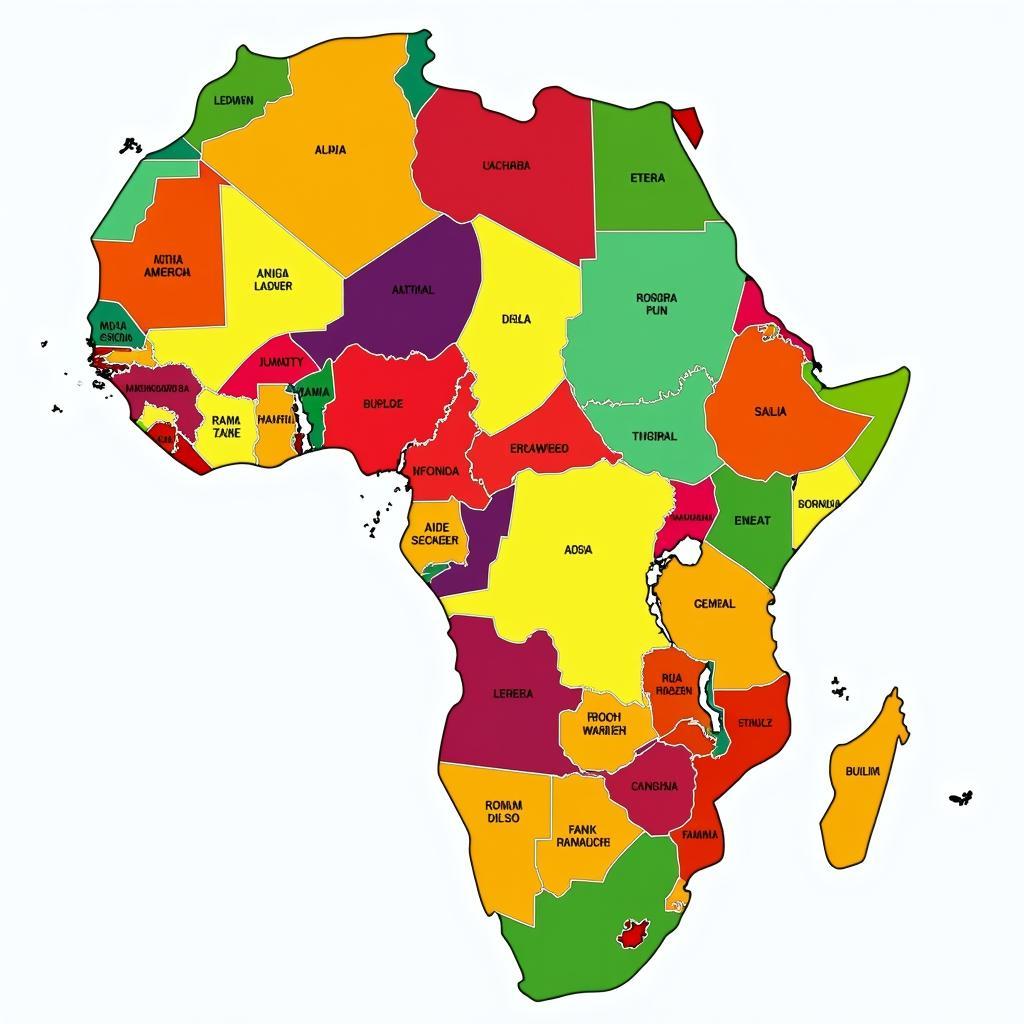African Kingdoms: A Journey Through Empires in the Age of Empires
The African continent, rich in history and culture, boasts a captivating tapestry woven with the rise and fall of powerful kingdoms. These African kingdoms, some of which flourished contemporaneously with well-known empires elsewhere, left an indelible mark on the world through their innovations, trade, and cultural advancements. This exploration delves into the heart of these empires, providing a glimpse into their significance in the age of empires.
Unveiling the Majesty: From Ancient Ghana to the Zulu Kingdom
When discussing African Kingdoms in the age of empires, it’s essential to recognize their diversity. While geographically dispersed across the continent, each kingdom carved its own unique identity. The ancient Ghana Empire, flourishing from the 8th to the 11th centuries, commanded the trans-Saharan trade routes with its abundance of gold, salt, and kola nuts. Similarly, the Mali Empire, rising to prominence in the 13th century, became renowned for its wealth and influence under the legendary rule of Mansa Musa, whose pilgrimage to Mecca remains a testament to the empire’s prosperity.
Further south, the Kingdom of Kongo, a sophisticated state that dominated Central Africa from the 14th to the 19th centuries, demonstrated prowess in metallurgy, sculpture, and governance. Meanwhile, the sprawling Oyo Empire in West Africa, known for its cavalry, art, and complex political structure, held sway for centuries. In East Africa, the Ethiopian Empire, with its ancient Christian roots and distinctive cultural heritage, commanded attention as a powerful force in the region.
Architectural Wonders and Cultural Brilliance
Beyond their political and economic prowess, African kingdoms distinguished themselves through architectural marvels and cultural achievements. The majestic ruins of Great Zimbabwe, a testament to the architectural ingenuity of the Shona people, still captivate visitors today. Constructed between the 11th and 15th centuries, the city’s intricate stone walls, monumental towers, and sophisticated drainage systems stand as a powerful symbol of a thriving civilization.
In West Africa, the cities of Djenné-Djenno and Timbuktu emerged as centers of learning and commerce. Djenné-Djenno, one of the oldest known cities in sub-Saharan Africa, boasted advanced mud-brick architecture. At the same time, Timbuktu, a pivotal stop on the trans-Saharan trade route, became renowned for its prestigious Sankore University, a beacon of Islamic scholarship that attracted students and scholars from across the Muslim world.
These kingdoms were not just centers of trade and knowledge; they were also patrons of the arts. From the intricate bronze castings of Benin to the beautiful wood carvings of the Yoruba people, African artistry flourished. Music and oral traditions played a central role in these societies, preserving history, transmitting knowledge, and entertaining.
Legacy and Significance in the Age of Empires
Though many of these African kingdoms faced decline due to internal conflicts, environmental changes, and the rise of colonial powers, their legacy continues to resonate. Their stories challenge historical narratives that often overlook the complexities and achievements of African civilizations.
Studying these kingdoms provides valuable insights into global trade networks, cultural exchange, and the dynamics of power during the age of empires. Understanding their stories helps paint a richer, more nuanced picture of our shared human history. It is a reminder that the African continent has a deep and enduring history of innovation, resilience, and cultural brilliance.
FAQ
What were the main economic activities of African kingdoms?
African kingdoms engaged in diverse economic activities, including agriculture, mining (especially gold and salt), trade (both within Africa and with other continents), and craftsmanship.
How did African kingdoms contribute to world history?
African kingdoms made significant contributions to world history through their innovations in architecture, art, governance, trade networks, and scholarship. Their stories challenge Eurocentric narratives and provide a more complete understanding of global history.
What led to the decline of some African kingdoms?
A combination of factors, including internal conflicts, environmental changes, the transatlantic slave trade, and the rise of colonial powers, contributed to the decline of some African kingdoms.
Need More Information?
For further exploration of African history and culture, delve into these fascinating topics:
Contact us for assistance:
Phone: +255768904061
Email: kaka.mag@gmail.com
Address: Mbarali DC Mawindi, Kangaga, Tanzania
We are available 24/7 to assist you!



